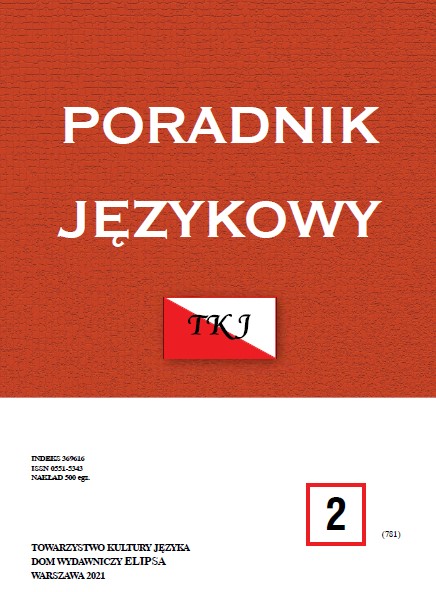WZGARDA, LUDZIE I BÓG. SEMANTYKA SŁÓW Z GNIAZDA LEKSYKALNEGO <POGARDA> W ŚREDNIOWIECZU I TWÓRCZOŚCI JANA KOCHANOWSKIEGO
CONTEMPT, HUMANS, AND GOD. THE SEMANTICS OF THE WORDS FROM THE LEXICAL NEST <POGARDA> (CONTEMPT) IN THE MIDDLE AGES AND IN JAN KOCHANOWSKI’S WORKS
Author(s): Radosław PawelecContributor(s): Monika Czarnecka (Translator)
Subject(s): Theoretical Linguistics, Lexis, Semantics, Historical Linguistics, Polish Literature, Western Slavic Languages, 16th Century, Philology, Theory of Literature
Published by: Dom Wydawniczy ELIPSA
Keywords: history of language; semantics; lexicology; axiolinguistics; artistic language; Jan Kochanowski;
Summary/Abstract: In the Middle Ages, words from the nest ‘pogarda’ (contempt) are characterised by semantic and axiological diversity. They can be found in religious texts in requests addressed to God for not rejecting a man or in negative evaluations of the human disregard for God’s commands and rules. With respect to interpersonal relations, they mean that one person disregards another one, rejects or refuses to help him or her. The latter might have had legal consequences if the person was obliged to provide such help. In Jan Kochanowski’s works, the meanings of such words do not change significantly; first of all, they are specified in their humane dimension in the human world and the stylistic use of their religious markedness is also noticeable. A further semantic evolution goes in the direction of “sharpening” the negative sense of the lexemes, which involves, among others, a change of ethics in the democratic society, where every human being is entitled to equal respect.
Journal: Poradnik Językowy
- Issue Year: 2021
- Issue No: 02
- Page Range: 7-20
- Page Count: 14
- Language: Polish
- Content File-PDF

